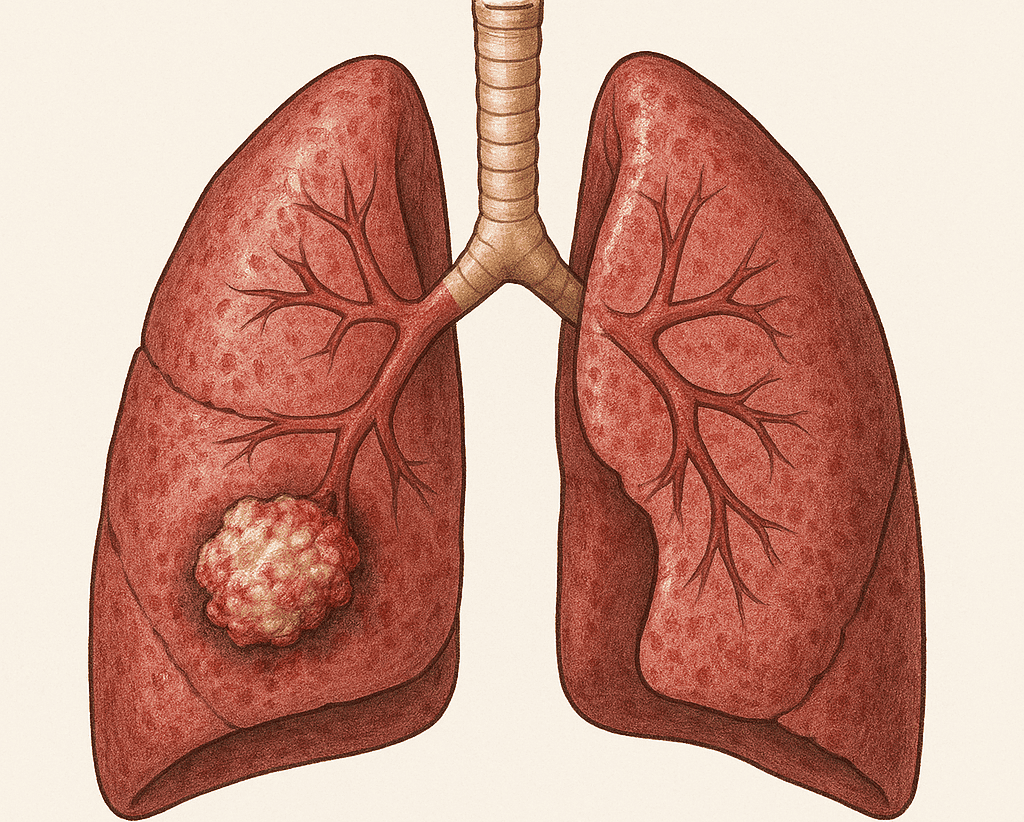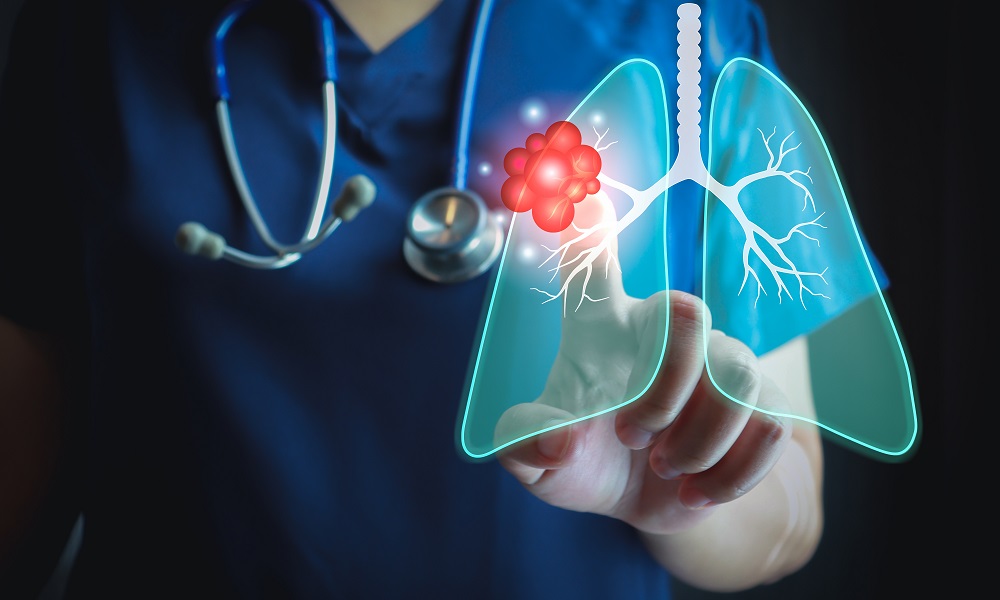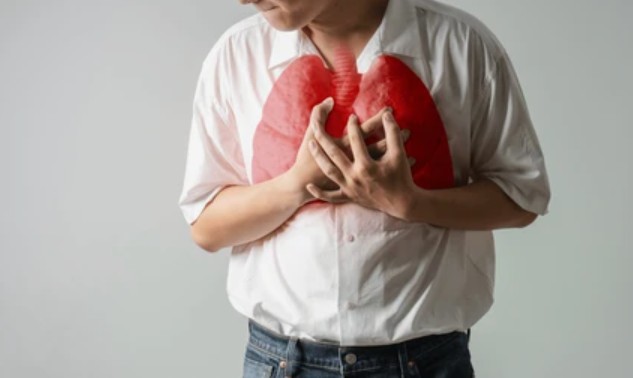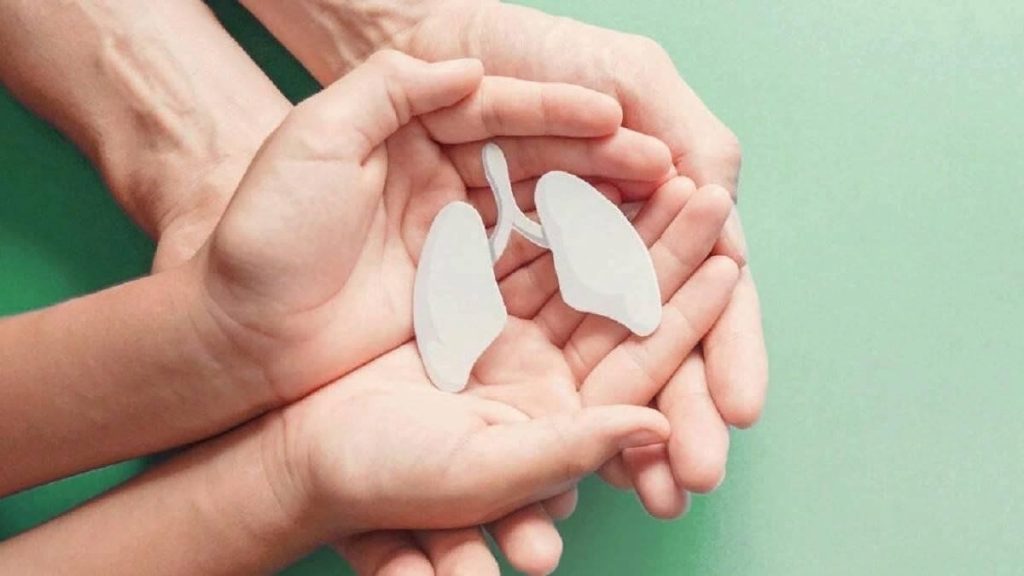Lung cancer Teatment in Dubai
Cancer
- Anemia
- Benign Hematologic treatment
- Bile Duct Cancer
- Bladder Cancer
- Brain Cancer
- Breast Cancer
- Colorectal Cancer
- Esophageal Cancer
- Floor of the Mouth Cancer
- Gastric Cancer
- Head and Neck Cancer
- Hematologic Malignancies
- Iron Deficiency Anema
- Kidney Renal Cancer
- Larynx Cancer
- Leukemia
- Liver Cancer
- Lung cancer
- Lymphoma
- Multiple Myeloma
- Nose Cancer
- Penile Cancer
- Prostate Cancer
- Sickle cell anemia
- Solid Tumor
- Spinal Tumor Clinic
- Testicular Cancer
- Throat Cancer
- Urological Cancers Treatment
Holistic Lung Cancer Care at King’s Cancer Care Centre Dubai
Lung cancer treatment in Dubai is one of the most common and serious types of cancer worldwide, affecting both men and women. Lung Cancer develops in the lungs and, if not detected and treated early, can spread to other parts of the body.
At King’s Cancer Care Centre in Dubai, we provide a comprehensive range of diagnostic, surgical, and medical treatments for lung cancer, led by some of the best lung cancer doctors in the region.
Our multidisciplinary team ensures personalized care, early detection, and access to the latest, most advanced options for lung cancer treatment in Dubai for the best possible outcomes.
What is Lung Cancer and How Does it Develop?

Lung cancer is a type of cancer that begins in the lungs — the two spongy organs in your chest responsible for bringing oxygen into the body and expelling carbon dioxide. It occurs when cells in the lung grow abnormally and uncontrollably, forming a mass (tumour) that can interfere with normal lung function.
Lung cancer develops when cells in the lungs grow out of control, forming a mass known as a tumour. Unlike healthy cells, which follow a natural cycle of growth and death, cancer cells continue multiplying without stopping. Over time, this can affect how the lungs work. The good news is that when detected early, lung cancer can often be treated successfully — and in some cases, cured.
Your lungs play a vital role in keeping you alive. They take in oxygen from the air you breathe and remove carbon dioxide from your body. The right lung has three sections, called lobes, while the left lung has two. Air passes through larger airways (bronchi), into smaller passages (bronchioles), and finally into tiny sacs called alveoli. It’s here, in the alveoli, that oxygen enters your blood and carbon dioxide is released.
In lung cancer, this delicate process is disrupted because abnormal cells grow where they shouldn’t, crowding out healthy tissue and making it harder for the lungs to do their job.

Is Lung Cancer Curable? Understanding Treatment and Survival Options
Find out the answer to “is lung cancer curable,” including factors that affect outcomes, treatment options, and survival rates.
What are the Types of Lung Cancer?
Lung cancer begins in the lungs and is generally divided into two main categories, based on the type of cells involved. Understanding the type of lung cancer is important, as it helps doctors choose the most effective treatment plan.
1. Non-small Cell Lung Cancer (NSCLC)
This is the most common form of lung cancer, making up around 85% of all cases. There are different subtypes of NSCLC, each linked to the type of cell where the cancer begins:
-
ADENOCARCINOMAS: Usually starts in the tiny air sacs of the lungs (alveoli). It is more often found in the outer parts of the lungs. While it is strongly linked to smoking, it can also occur in non-smokers.
-
SQUAMOUS CARCINOMAS: Develops in the flat cells (squamous cells) that line the airways, often in the central part of the lungs.
- LARGE CELL (UNDIFFERENTIATED) CARCINOMAS: Can appear in any area of the lung. This type of cancer tends to grow and spread more quickly, which can make treatment more challenging.
2. Small Cell Lung Cancer (SCLC)
Also called oat cell cancer, this type is less common but more aggressive. It grows and spreads faster than NSCLC. While it usually responds well to treatments like chemotherapy and radiation, it has a higher chance of returning after treatment.
Other Lung Tumors
Not all tumors in the lungs are classified as the two main types above. Other less common lung tumors include carcinoid tumors, lymphomas, cystic carcinomas, and benign (non-cancerous) growths. In some cases, cancers from other parts of the body can spread to the lungs, but these are considered secondary cancers rather than lung cancer itself.
What are the Symptoms of Lung Cancer?

In its earliest stages, lung cancer may not present any symptoms. Overall, the symptoms of lung cancer will depend on where and how fast the cancer spreads. These symptoms include:
- Persistent dry cough that doesn’t get better
- Shortness of breath
- Unexplained weight loss
- Chest pain
- Coughing up blood
- Shoulder pain that flows down to the outer nerves
- Infections such as pneumonia and bronchitis
- Voice hoarseness
- Headaches
- Fatigue
- Bone pain
Some people may also experience more general symptoms such as tiredness, low mood, or loss of appetite.
If you notice any of these signs, it doesn’t always mean you have lung cancer — but it’s important to seek medical advice as soon as possible. Early detection makes treatment more effective and can improve outcomes.
Causes and Risk Factors of Lung Cancer
Lung cancer is one of the most common types of cancer and one which has a high mortality rate. There are various factors that can cause the disease, including:
-
Smoking and Passive Smoking: Cigarette smoking is the greatest cause of lung cancer. This is because the tobacco has toxic chemicals called polycyclic aromatic hydrocarbons (PAHs), Nicotine, Carbon monoxide, and nitrosamines. Tobacco has radioactive materials in the leaves used to make cigarettes and cigars which are given off in the smoke when it’s burned. This smoke is what smokers inhale into their lungs causing a high risk of cancer and lung disease.
Passive smoking, on the other hand, is where a non-smoker inhales the tobacco smoke from an environment where smokers are smoking. The exposure of non-smokers living with a smoker increases the risk of lung cancer.
-
Exposure to Minerals and Gas: Cancer can also rise from pleura and is called mesothelioma cancer (inhaled asbestos fibers from naturally occurring minerals, which can lead to malignant tumors that form in the lining of the lungs or heart).
A natural radioactive gas called radon is also known to cause cancer of the lungs. This gas is a natural decay of uranium that is emitted by ionizing radiation. Radon gas is odorless and invisible and can penetrate through the soil and can enter drains, pipes, or any other openings. A test kit can be used to detect its presence.
- Genetic Predisposition: While smokers are at risk of developing lung cancer, there are people who are genetically predisposed to the disease. This means that the individual carries the lung cancer gene which increases the risk of him/her developing it.
Diagnosis of Lung Cancer
Early diagnosis of lung cancer can lead to a successful treatment and cure. If you notice or detect any of the symptoms of lung cancer mentioned above, then it is recommended to seek medical help for a diagnosis.
Lung cancer is diagnosed through:
- A PHYSICAL EXAM for signs or symptoms such as difficulty in breathing or blocked airway.
- An ULTRASOUND SCAN
- GENETIC TESTS based on family history of cancer genes
- IMAGING TEST: Screenings such as CT Scan (low-dose helical CT imaging /spiral CT scan), X-ray, MRI, and PET (Position Emission Tomography) are done to give a detailed view of the affected area(s). This is mostly performed in smokers and can detect lung cancer in its early stages.
- SPUTUM CYTOLOGY: This is a simple procedure done under a microscope to test the phlegm/saliva to allow visualization of tumor cells.
- BONE SCANS: This is done on a computer screen to determine if the lung cancer has spread to the bones.
- BRONCHOSCOPY: A biopsy examination of the airways via a thin fiberoptic probe is inserted in the mouth or nose.
- THORACENTESIS: The cancer may cause the lining tissues in the lung to form fluid at the pleural effusion (space between the chest wall and lungs). The biopsy is done with a thin needle to get fluid for examination.
- NEEDLE BIOPSY: The fine needle aspiration (FNA) is inserted through the chest wall into the lung. The cells are sucked into the syringe and are tested for the presence of cancer cells.
Advanced Treatment Options for Lung Cancer Treatment in Dubai

Lung cancer treatment is usually dependent on:
- The aggressiveness of the cancer
- Type of the cancer
- Stage of the cancer
- Size and location of the tumor
- Age and overall health of the patient
- History of lung cancer in the family
- Gene mutation test results
Treatment options for lung cancer include:
Surgery
As part of our comprehensive lung cancer treatment in Dubai, surgery may be recommended in the early stages, particularly stage one or two non-small cell lung cancer (NSCLC). In these cases, the tumor can be surgically removed when the cancer is still localized within the lung. Surgery is more commonly performed for NSCLC than small cell lung cancer (SCLC), as SCLC tends to spread more extensively. When the cancer is slow-growing and removed successfully, patients may have a significantly improved chance of surviving beyond five years after diagnosis.
Radiation Therapy
Radiation therapy uses high-energy X-rays to target and destroy cancer cells. It is an option for both NSCLC and SCLC. External radiation directs the beams from a machine toward the tumor, while internal radiation places a sealed container with radioactive material directly in the area of the tumor. Radiation is often used to shrink tumors that cannot be removed surgically, such as those affecting the trachea or lymph nodes.
Chemotherapy
Chemotherapy uses powerful anti-cancer drugs to kill rapidly dividing cancer cells, including any that may remain after surgery. It is used for both small cell and non-small cell lung cancers, though it can also affect healthy cells. Chemotherapy may be administered through intravenous infusion, oral medication, or a combination of both, typically in cycles.
Targeted Therapy
Targeted therapy is an advanced option in lung cancer treatment in Dubai, focusing on specific cancer cell mechanisms without harming healthy cells. EGFR-targeted therapies work by blocking the epidermal growth factor receptor, which is responsible for promoting cancer cell division. Commonly prescribed drugs include Erlotinib (Tarceva), Gefitinib (Iressa), and Afatinib (Gilotrif), which aim to slow or stop tumor growth while minimizing damage to healthy tissue.
Inspiring Patient Story & Survivorship - Lung Cancer Survivor in Dubai
Rodika initially saw a Pulmonologist, and after several scans and biopsies, she was referred to Dr James Douglas Aitchison, Consultant Thoracic Surgeon. Despite her status as a healthy, active non-smoker, the unexpected diagnosis jolted Rodika’s world. However, Dr. Aitchison’s proactive approach ensured swift action, culminating in a successful keyhole surgery that effectively eliminated the cancer.
FAQ's about Lung Cancer
Smoking: The single biggest risk factor, responsible for up to 85% of cases.
Second-hand smoke exposure
Environmental exposures: Radon gas, asbestos, diesel exhaust, or industrial carcinogens
Air pollution
Family history and genetic mutations
Previous lung disease (such as COPD or pulmonary fibrosis)
Yes. Around 10–20% of lung cancer cases occur in people who have never smoked. Causes may include prolonged exposure to radon gas, environmental pollutants, genetic predisposition, or occupational hazards. This highlights the importance of regular screening and medical evaluation, even for non-smokers with risk factors.
Early-stage lung cancer: Surgery or stereotactic body radiotherapy (SBRT) can often cure the disease.
Locally advanced stages: A combination of chemotherapy, radiation, and targeted therapies can significantly improve survival.
Advanced/metastatic stages: While cure is less likely, treatments can extend survival, reduce symptoms, and improve quality of life.
Quit smoking immediately (if applicable) to enhance treatment effectiveness.
Adopt a balanced diet rich in protein, fruits, vegetables, and whole grains.
Exercise moderately to maintain strength and reduce fatigue.
Manage stress through counselling, meditation, or relaxation techniques.
Follow up regularly with your oncology team for monitoring and prevention of recurrence.
Comprehensive cancer centres offer:
Psychological counselling to cope with anxiety, depression, and fear.
Nutritional guidance to maintain strength during treatment.
Rehabilitation services for breathing exercises and physical recovery.
Support groups for patients and caregivers to share experiences and encouragement.
Comprehensive Lung Cancer Care You Can Trust
If you are in Dubai and looking for a Cancer Hospital, we offer advanced treatment options for lung cancer at our specialized cancer center.
At King’s Cancer Care Centre, we provide leading-edge lung cancer care in Dubai, offering patients the latest in diagnostic tools, advanced treatments, and personalized support. From early detection to comprehensive treatment plans, our expert oncologists and multidisciplinary team ensure every patient receives care tailored to their condition and needs. With access to advanced therapies such as surgery, chemotherapy, radiation, and targeted treatments, we are dedicated to delivering compassionate, effective, and world-class care for lung cancer patients in Dubai.
